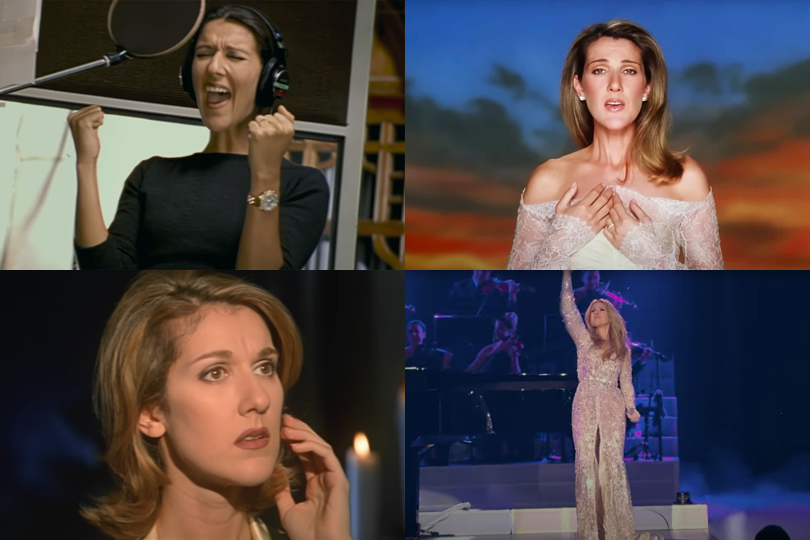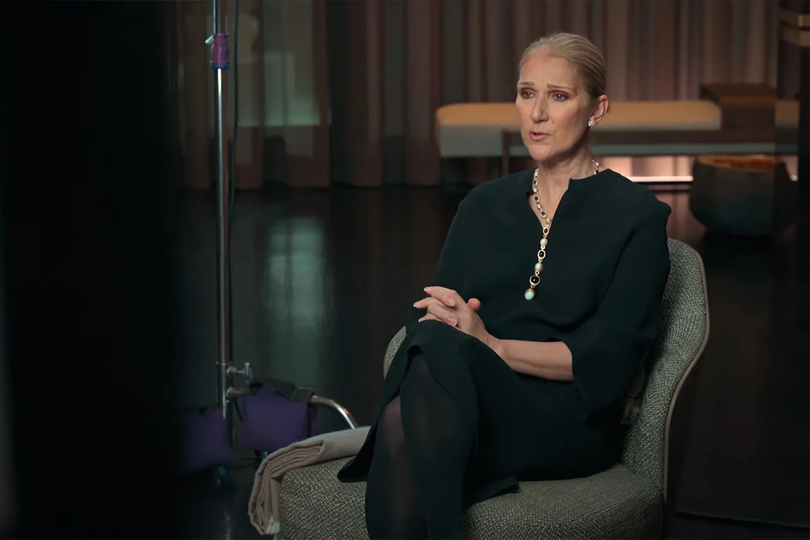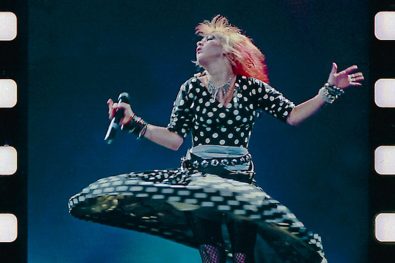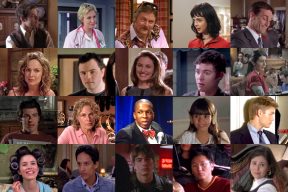By Anne T. Donahue
This week, we were treated to the I Am: Celine Dion trailer as well as the collective realization that when Celine Dion cries, most of us do, too. Directed Oscar-nominated Irene Taylor, the documentary will be released on Prime on June 25, and will chart the Grammy singer’s life, lore, and her day-to-day struggle with the neurological disease, stiff person syndrome. It looks intense, it looks inspiring, and it looks like a lot of us will be unlocking core memories as we recall where we were the first time we heard “My Heart Will Go On.”
For the record, most of us were approaching and/or just barely teens. During the height of Dion, most of us were small, naïve, baby angels who held our copies of Falling into You and Let’s Talk About Love close while we navigated the treacherous world of middle school.
And we couldn’t be blamed: Celine sang the title track to Beauty and the Beast. She dominated mainstream radio, and dictated the album collections of our aunts and moms. The year Falling into You came out (1996), I was in sixth grade and one of the only girls in my class who hadn’t gotten a copy of the CD yet. Yes, my uncle had bought me the tape for my birthday, but goddamn it, it wasn’t the same: on disc, “It’s All Coming Back To Me Now” was a seven minute-up ballad that meticulously detailed the rise and fall of a tumultuous relationship. On cassette, it was the four-minute radio edit – still dramatic and “grown-up,” but still three minutes short of what I knew to be a testament to the complications of adulthood.
Celine Dion, of course, represented a very specific type of adulthood. Her voice and her lyrics aligned with the other benchmark of being grown (daytime soap operas), and her interpretation of love seemed to promise we too would mature to do whatever we could when the man we liked “reached for us.” This was, of course, not the case, and nor was it for any woman I grew up around who had a job or kids or more to do than worry about some guy they were with. But it was glamorous! Exhilarating! And the perfect music to choreography roller blade routines to on the street in front of my house.
But our fixation on Dion, especially in context, makes sense. We may have been children during the rise of Celine, but she mastered an image of a woman who had Big Feelings and who wasn’t afraid to sing using her Even Bigger Voice. Should our schools have let us do lip syncing shows set to “Because You Loved Me” and “To Love You More”? Who cares! (A fun fact: in the 1990s, lip syncing to a top 40 song counted as the year’s “music project.”) We escaped into an extremely made-for-TV fantasy in which love was the be all, end all, and somewhere in-between.

The thing is, while we can all now see Celine Dion as a person (thus flawed, complicated, complex, etc.), it makes sense that even as tweens, we were so consumed by her music. She was our Taylor. Our Olivia. Our Ariana. In the same way my neighbour’s seven-year-old daughter doesn’t fully understand the context of “The Smallest Man Who Ever Lived,” few of us really wrapped our heads around “The Colour of Love” when it came out in 1993. We, like the Swifties, were enamoured with the promise of an abstract future in which we too could have things to say about romantic relationships. No part of me has ever related to Celine Dion, but as a kid who was convinced that kind-of bullying the boy in my grade four class would make him fall in love with me, I was enamoured with the idea that eventually, I would glean the secrets that would unlock a world in which my feelings were not only articulated properly, but somehow reflected back to me via the adult contemporary genre.
Some of us did grow out of Celine. After “My Heart Will Go On,” nothing could possibly match the splendour of her voice and a video heavily featuring Leonardo DiCaprio, so I found more age-appropriate music (Spice Girls, Backstreet Boys, All Saints) that articulated the angst of being a teen and feeling absolutely out of my mind every day, all the time. And now, as an adult – one much older than when Celine Dion began singing like there was no tomorrow – I still don’t relate to her music, mainly because loving anybody that much sounds exhausting, and I frankly don’t have the bandwidth.
But I will watch I Am: Celine Dion, and I will feel feelings, and I will use it as an excuse to blare Unison as loud as I can to drown out my sad attempts at reaching high notes. Then, I will listen to all seven-plus minutes of “It’s All Coming Back To Me Now” and congratulate myself on still having a CD player.
Need a little more Anne? Read more from Anne T. Donahue right here!











